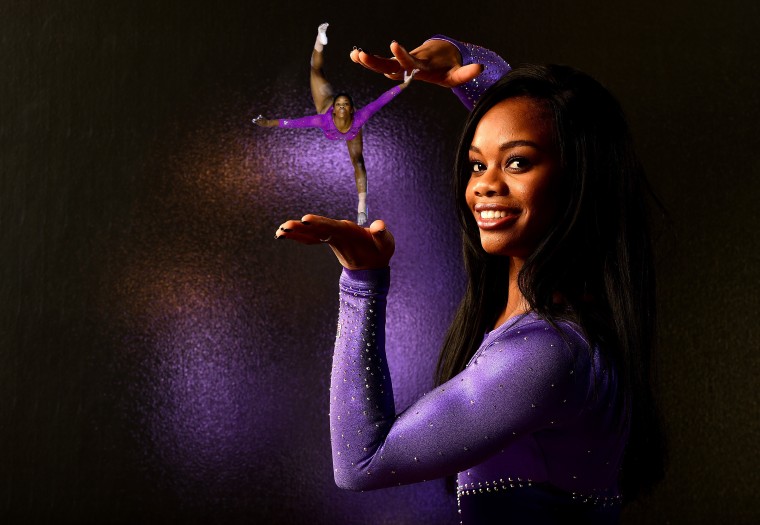The FADER Weekend Reading List
“Safe” spaces, white rappers, and the place of makeup at the Olympics.
 Illustration by Leah Mandel
/
Ronald Martinez, Harry How / Getty
Illustration by Leah Mandel
/
Ronald Martinez, Harry How / Getty
Gymnastics, Ideal Girls, And The Signal Of Makeup
Autumn Whitefield-Modrano, The New Inquiry
This week, for her column on personal appearance, The Beheld, Whitefield-Modrano tackled makeup's place in Olympic gymnastics. "Makeup is a part of what we’ve come to think of as gymnastics behavior. Which is to say, girlish behavior," she wrote, and considers social media's response to Gabby Douglas's unconventional Olympic appearance (read: lack of makeup, pristine hair, and bubbly demeanor to match her teammates').
How Bad Urban Planning Led To The Birth Of A Billion-Dollar Genre
Alice Kemp-Habib, The FADER
In this incredibly insightful interview, architect Mike Ford talks about the relationship between structural racism, public housing projects, and hip-hop — and how it all led to the growth of a billion-dollar music genre.
Not The Safe Space You Were Thinking Of
Jeff Ihaza, The Awl
"The contagion-like spread of well-off whites in Brooklyn, often with the help of government, is a tactile representation of the types of privilege built in to how society functions," Ihaza wrote in this piece, before it goes on to explore what's good with high-end coffee shops that open in low-income areas, and the sociology of "the safe space of wealthy whites expand[ing] like Manifest Destiny."
White Rappers, Clear Of A Black Planet
Jon Caramanica, New York Times
"Now we have arrived in the post-accountability era of white rap," wrote NYT music critic Caramanica as he considers Lil Dicky, Post Malone, and Mike Stud in this crucial essay, "when white artists are flourishing almost wholly outside the established hip-hop industry, evading black gatekeepers and going directly to overwhelmingly white consumers, resulting in what can feel like a parallel world, aware of hip-hop’s center but studiously avoiding it."
Nate Parker’s Alleged Rape And The Limits of Hollywood Damage Control
Anne Helen Petersen, BuzzFeed
In 1999, Nate Parker and his then-roommate were accused of raping a young woman while attending Penn State. Now, Parker is an actor and director, who's just made a promising new film about the Nat Turner Rebellion called The Birth of a Nation. It's getting Oscar buzz, and Parker's past has come back into the light. BuzzFeed's Peterson discusses "the Hollywood apparatus that attempts to soften past transgressions in the name of art, awards, and, above all, profits."
Also from BuzzFeed this week: a matricide case involving a girl named Gypsy and her mom, Dee Dee, who forced her daughter to pretend she was sick for years, and 73 year old Juanita Broaddrick's rape accusations against former president and future First Gentleman Bill Clinton.
How Glossier Harnessed The Myth Of Cool Girl Makeup
Haley Mlotek, The FADER
Glossier, the online-only beauty brand offshoot of Emily Weiss's online-only beauty publication Into The Gloss, is the internet’s favorite skincare brand. For The FADER's Fall Fashion issue, Mlotek takes a look at what it is exactly that makes Glossier so crave-able.
No Control: Thoughts On The End Of The Headphone Jack And The Future Of Digital Music
Michael Nelson, Stereogum
Word is, Apple is removing the headphone jack from the next version of the iPhone, and leaving a single lightning jack and changing their earbud cords to the lightning mold as well. That means, in the very near future, you will not be able to listen to music (or anything) on an iPhone with non-Apple headphones. Also, Apple owns Beats, the world's most popular headphone brand. This piece breaks it down, starting with how Steve Jobs eviscerated the music industry with the introduction of iTunes.